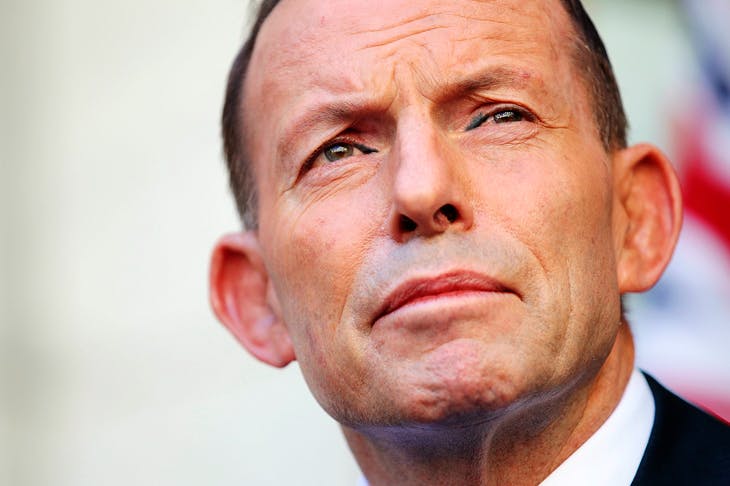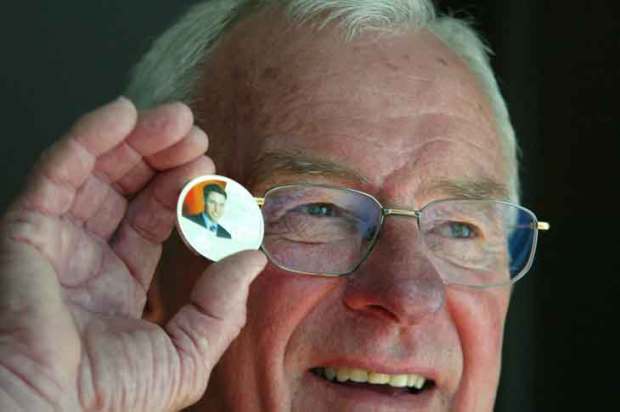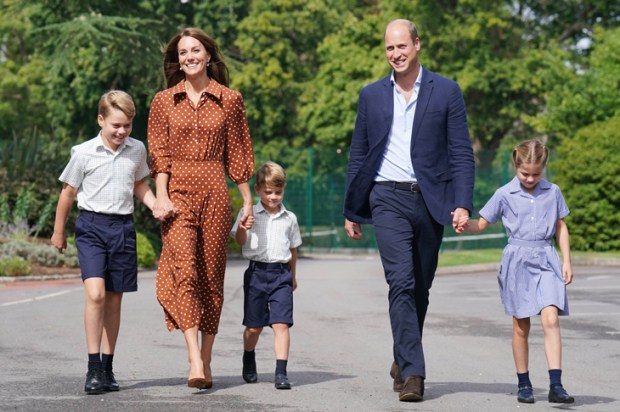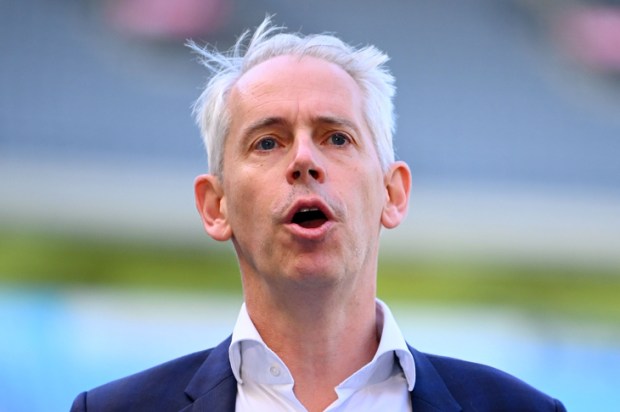Tony Abbott is a ‘very good human being’, ‘his decency quite impossible to overlook’, declares the ALP eminence, Graham Richardson. Coincidentally, this came after an overlooked survey had revealed that both Coalition and Labor voters trust Abbott. Above the plotting, leaking and undermining so treacherously used against him, Abbott understands and has followed the central parliamentary principle that when a frontbencher loses confidence in his leader, even believing he must go, the only honorable course is to resign. He stands tall not only in comparison with his backstabbing successor, but also with the double backstabber, Bill Shorten.
From his hard Left redoubt, Malcolm Turnbull has laughably called on the Liberal Party to move to the ‘sensible centre’. Apart from the Abbott government measures he has to keep in return for the keys to the Lodge, his obsession with extreme global warming theory has made energy supplies unreliable and among the most expensive on the planet. He has socialised the national broadband network, abandoned the ABC to the Left and penalised the Liberal base including the self-funded retirees. With massive waste on existing and new programmes, an unashamed massive raid on the defence budget to save Christopher Pyne’s and other seats, it is little wonder that government debt is now out-of-control. That a Shorten Labor government would be even worse explains why so many voters are abandoning the major parties.
The obvious solution is to bring Abbott back. Indeed, if the Liberal party caught up with most other democratic parties in the West and stripped those immortalised by 2GB’s Alan Jones as the ‘bed wetters’ of the power to choose the leader and moved it to where it morally belongs, the rank-and-file members, Abbott would win in a landslide. In office, he would attract valuable support from a growing conservative bloc in the Senate.
The strongest opposition to Abbott comes in a pincer operation, one side being the hard-Left, self-styled ‘moderates’, who are over-represented in the parliamentary party and selected, at least in NSW, for loyalty to a lobbyist powerbroker rather than on merit. The other side of this pincer is the ever-hostile commentariat.
Now, thanks to Donald Trump, Australians appreciate just how ‘fake news’ is employed as a powerful political weapon. This violates that basic rule of good journalism, that comment is free, but facts are sacred. A juggernaut in the 1999 referendum, fake news has long been used against Abbott, its practitioners constantly fed by treacherous elements in the parliamentary party, even when he was prime minister.
A classical example is Niki Savva’s concocted story in the Australian that Abbott admitted ‘lying in face-to-face discussions with China’s leadership’ to ratify the extradition treaty. Nothing could be further from the truth. When President Xi Jinping raised the question of ratification, Abbott said no more than that he would look into the matter. When he did, he agreed with advice against ratification because of the state of the Chinese legal system. Then, with a far better understanding of diplomacy than either Turnbull or Foreign Minister Bishop, he directed that this should be communicated discreetly to the Chinese. When Turnbull and Bishop foolishly tried to steamroll ratification, they subjected the Chinese to the very gratuitous public embarrassment, the loss of face, that Abbott had been at pains to avoid. Proof indeed that Abbott and not Turnbull should be in The Lodge.
We now have the benefit of a reliable analysis by Essential Research of voters’ reactions to Abbott. This was based on his recent call for five changes to government policy:-
1.Abolish subsidies for renewables and cut renewable energy targets to reduce household power bills.
- Abolish the Human Rights Commission to allow more free speech.
- Stop all new government spending to reduce future debt.
- Cut immigration to make housing more affordable.
- Reform the Senate to reduce the power of small parties.
Respondents were divided into two equal groups. The first were asked ‘Do you agree or disagree with the following proposals for actions the Federal Government could take?’. The second were asked ‘Do you agree or disagree with the following proposals for actions which Tony Abbott has said the Federal Government should take?’.
If the Abbott haters are correct, the second group should have been far less supportive of the proposals once they realised or were reminded that they were Abbott’s. Not so. The second group actually recorded higher support for three proposals and no change for two: +7 per cent, +6 per cent, +8 per cent, 0 per cent and 0 per cent. If these percentages were reflected in an electoral vote, the impact could be substantial. It is therefore difficult to see how Abbott’s proposals were the cause of the decline in support for the government registered in the following Newspoll, as Turnbull had claimed, a view widely reported in the media.
On knowing or being reminded that Abbott was the proposer, Coalition voters recorded higher support for the proposals (from 1 per cent to 9 per cent) except for immigration reform. There, support fell from 69 per cent to a still high 63 per cent. The answers of the Labor voters were surprising. Instead of being turned off, those who knew or were reminded that the proposals were Abbott’s recorded higher support in relation to the RET, HRC and debt, and lower support in relation to immigration reform and Senate reform: +8 per cent, +8 per cent, +4 per cent, -4 per cent and -5 per cent . On average then, it is fair to say that even Labor voters trust Tony Abbott’s judgment and may even be inclined to vote for him on his policies.
Had similar polls been taken after Abbott’s reservations expressed in, as Graham Richardson says, ‘that folk-wisdom language for which he is renowned’ on three other questions, Senate horse trading, the Chinese extradition treaty and keeping the Hazelwood power station open, he would have no doubt attracted even higher support among voters, Coalition and Labor.
This contradicts those obsessed with writing off Tony Abbott.
A powerful campaigner who offers the leadership rank-and-file Australians more and more crave, he would obviously attract votes across the spectrum and is far more likely to win the next election.
Got something to add? Join the discussion and comment below.
Get 10 issues for just $10
Subscribe to The Spectator Australia today for the next 10 magazine issues, plus full online access, for just $10.
You might disagree with half of it, but you’ll enjoy reading all of it. Try your first month for free, then just $2 a week for the remainder of your first year.














Comments
Don't miss out
Join the conversation with other Spectator Australia readers. Subscribe to leave a comment.
SUBSCRIBEAlready a subscriber? Log in